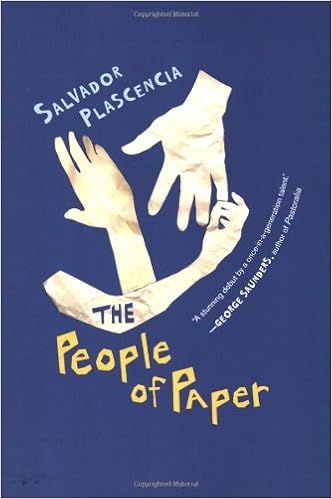bibliophile
noun bib·lio·phile \ˈbi-blē-ə-ˌfī(-ə)l\
: a lover of books especially for qualities of format; also : a book collector
noun bib·lio·phile \ˈbi-blē-ə-ˌfī(-ə)l\
: a lover of books especially for qualities of format; also : a book collector
nov·el /ˈnävəl/ noun
1. a fictitious prose narrative of book length, typically representing character and action with some degree of realism.adjective2. new or unusual in an interesting way.
 Salvador Plascencia’s debut novel The People of Paper raises questions regarding authorship and voice in a work. Blurring the lines between author and speaker, the work leaves readers questioning who is really getting to tell the story.
Salvador Plascencia’s debut novel The People of Paper raises questions regarding authorship and voice in a work. Blurring the lines between author and speaker, the work leaves readers questioning who is really getting to tell the story.
In a world where the victors of war (colonizers, or Saturn) dictate written history, The People of Paper offers a novel wherein the colonized (members of E.M.F.) have the opportunity to dictate their own point of view. This novel forces readers to question the authenticity of what they are reading; how much of the story has been fabricated, misrepresented, or mistold? This novel requires readers to glean their own understanding of truth by sifting through various sides of the same story. Continue reading “Authenticity of Voice in People of Paper: A Close Reading”
 The main protagonist of the novel Happiness for Beginners is thirty-two year old Helen Carpenter. Helen is a recent divorcee, who one year after her divorce, decides to go on a hike to become a stronger better person. This hike is no normal walk in the park. It is an intense, away from any civilization, three week, fourteen people group hike. Continue reading “Happiness For Beginners by Katherine Center”
The main protagonist of the novel Happiness for Beginners is thirty-two year old Helen Carpenter. Helen is a recent divorcee, who one year after her divorce, decides to go on a hike to become a stronger better person. This hike is no normal walk in the park. It is an intense, away from any civilization, three week, fourteen people group hike. Continue reading “Happiness For Beginners by Katherine Center”